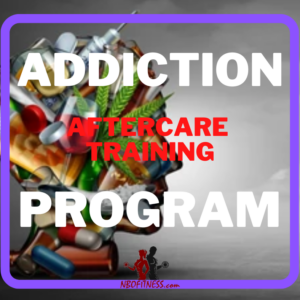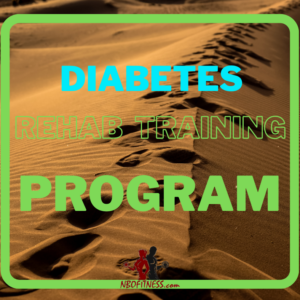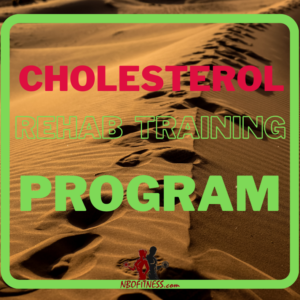
Food addiction is a compulsive relationship with food where you find yourself unable to resist eating, even when you know it’s unhealthy. Just like drug or alcohol addiction, highly processed foods rich in sugar, fat, and salt can hijack the brain’s reward centers, making you crave more. These foods cause a spike in dopamine, a feel-good hormone, that makes you want to keep eating—even when you’re not hungry. This leads to insulin-induced hypothalamic leptin resistance, making you a prisoner of yourself, against your will.
Reviewed by Evans Mwaniki, PT
In today’s fast-paced world, it’s easy to find ourselves turning to food for comfort, convenience, or even stress relief. But what happens when we become dependent on it, unable to stop consuming even when it’s harming us? Food addiction is a serious, yet often overlooked, condition that can quietly destroy your health. It goes beyond cravings and indulgence—food addiction can lead to devastating diseases like diabetes, high blood pressure, and cancer. The hidden danger is that this addiction is silently killing you prematurely.
But how does food addiction take such a heavy toll on your body, and what can you do to prevent it? Let’s break it down in simple terms, while also explaining why monitoring your body fat percentage is crucial in avoiding long-term health issues.
What Is Food Addiction?
Food addiction is a compulsive relationship with food where you find yourself unable to resist eating, even when you know it’s unhealthy. Just like drug or alcohol addiction, highly processed foods rich in sugar, fat, and salt can hijack the brain’s reward centers, making you crave more. These foods cause a spike in dopamine, a feel-good hormone, that makes you want to keep eating—even when you’re not hungry. This leads to insulin-induced hypothalamic leptin resistance, making you a prisoner of yourself, against your will.
The Dangers of Food Addiction
While occasional indulgence is normal, chronic overeating as a result of food addiction can lead to serious health problems, often with life-threatening consequences. Here’s why food addiction can kill you prematurely:
1. Diabetes
Eating too much sugar-laden and processed food on a regular basis causes your blood sugar levels to skyrocket. Your body responds by producing insulin to help manage the sugar in your bloodstream. But when this happens repeatedly, your body can become insulin resistant, meaning your cells stop responding to insulin, causing blood sugar to remain high. This can lead to type 2 diabetes—a condition that damages your blood vessels, nerves, and organs over time.
2. High Blood Pressure
Processed foods often contain high levels of sodium, which can cause your body to retain water and increase blood volume. This puts extra pressure on your heart and blood vessels, leading to high blood pressure (hypertension). Hypertension is a key risk factor for heart disease, stroke, and other cardiovascular conditions.
3. Cancer
Believe it or not, food addiction can increase your risk of developing certain cancers. Processed foods, especially those high in sugar like High Fructose Corn Syrup and unhealthy fats, can cause chronic inflammation in your body. This inflammation creates an environment where cancer cells thrive and multiply. Additionally, obesity caused by food addiction has been directly linked to cancers of the colon, breast, pancreas, and liver.
Metabolic Pathways: How Food Addiction Triggers Disease
When you consume foods that are high in sugar, fats, and salt, they activate certain metabolic pathways in your body that lead to disease. Let’s break down the key processes:
1. Insulin Resistance and Diabetes
When you eat too much sugar (glucose), your pancreas produces insulin to help cells absorb sugar and use it for energy. However, frequent high-sugar consumption leads to excess glucose in your bloodstream, forcing the pancreas to pump out more insulin. Over time, your cells become less responsive to insulin, resulting in insulin resistance. This not only leads to diabetes but also promotes fat storage in the body.
2. High Blood Pressure Pathway
The sodium found in processed and fast foods disrupts your body’s ability to maintain a healthy balance of water and minerals. Too much sodium forces your kidneys to hold onto water, which increases the volume of blood circulating through your blood vessels. As a result, your blood pressure rises, placing strain on your heart and blood vessels.
3. Obesity and Chronic Inflammation
Overeating leads to excess body fat, especially visceral fat (fat stored around your organs). This fat releases inflammatory substances called cytokines. Chronic inflammation damages cells and tissues, making them more susceptible to cancer, heart disease, and other chronic conditions.
Why You Must Monitor Your Body Fat Percentage
A common misconception is that obesity only applies to those who are visibly overweight. However, you can have a normal weight and still carry dangerous amounts of body fat. This condition, known as normal weight obesity, is just as deadly. It’s not about how big your body looks, but about how much fat versus lean tissue (muscle) you carry.
Your body fat percentage is a much more accurate indicator of health than weight alone. Having too much fat and too little lean tissue (muscle) increases your risk of:
- Heart disease
- Stroke
- Diabetes
- Certain types of cancer
At Nairobi Fitness Consulting, we offer Body Composition Analysis to help you determine your body fat percentage and assess your risk factors. By doing this, you can take preventative action before serious health problems develop.
How to Break Free from Food Addiction
Overcoming food addiction is challenging but not impossible. Here are some actionable steps you can take:
- Eat more whole foods: Replace processed foods with whole, natural options like fruits, vegetables, lean proteins, and whole grains.
- Practice mindful eating: Pay attention to hunger and fullness cues. Avoid eating out of boredom or stress.
- Seek professional help: At Nairobi Fitness Consulting, we specialize in personalized nutrition and exercise programs that can help you overcome food addiction and regain control of your health.
Food addiction is not just about gaining weight; it’s about damaging your body from the inside out. The combination of processed foods, lack of nutrition, and overeating can lead to premature death if not addressed. But it’s never too late to make a change.
If you have more questions or need further assistance, don’t hesitate to reach out to Nairobi Fitness Consulting. We are here to help you at our Obesity Treatment Centre and Human Performance Institute. Your health is our top priority, and with the right guidance, you can break free from food addiction and live a healthier, happier life.
Let’s work together to reclaim your health today!










